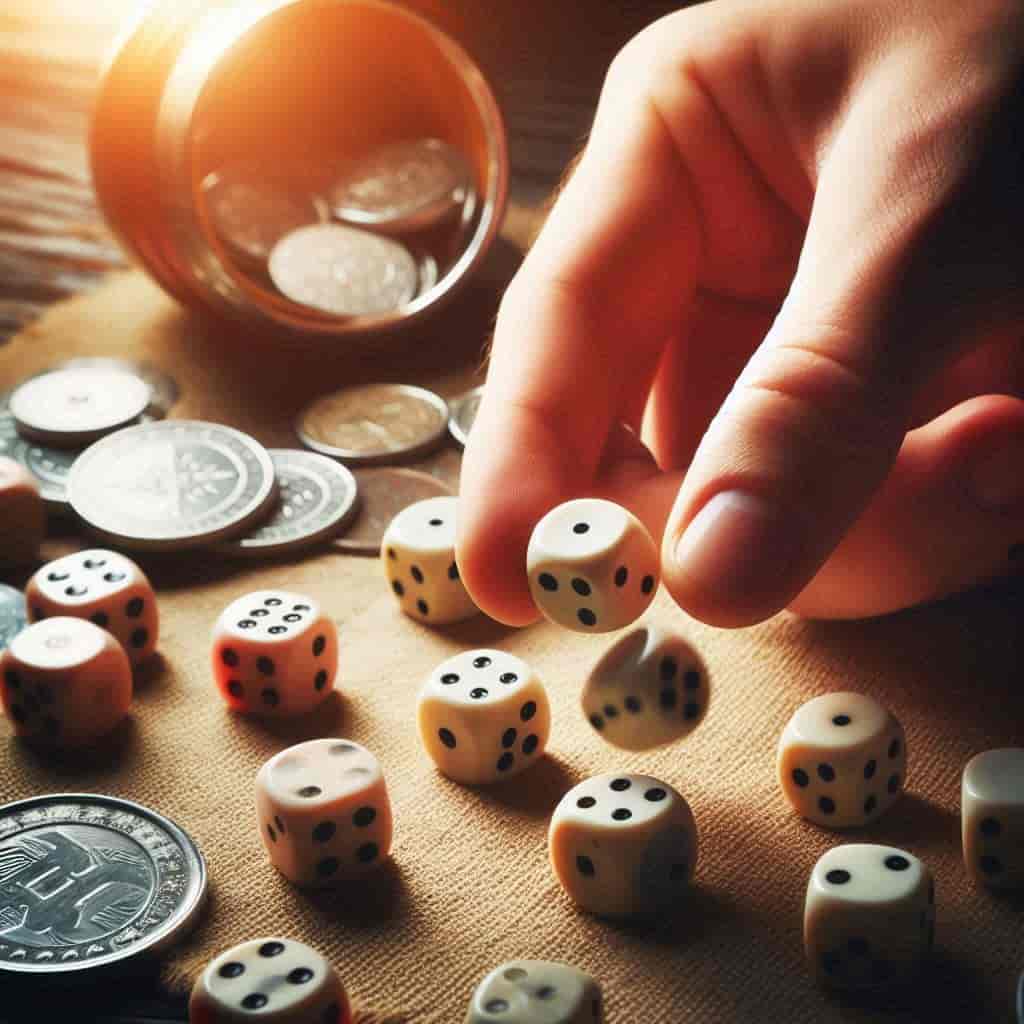Many players are drawn to baccarat because it blends simplicity with the anticipation of unpredictable outcomes. The game creates an experience that feels both controlled and exciting. Baccarat (บาคาร่า) continues to attract beginners and high rollers alike due to its steady pace, clear betting options, and relatively low house edge.
It has long been recognized for offering a balanced combination of chance and light strategy, making it ideal for players who appreciate structure while still enjoying the thrill of uncertainty. Baccarat naturally leads into a much broader conversation about whether luck truly influences gambling outcomes and how much control players can realistically expect while playing any casino game.
Baccarat Highlights the Ongoing Debate about Luck in Gambling
The structure of baccarat helps illustrate how luck plays a significant part in gambling, especially when outcomes depend on card draws and probabilities that no player can fully predict. Even with consistent betting patterns or disciplined bankroll management, the result of each hand still hinges on factors beyond human influence.
As players explore this balance, they begin to understand why baccarat is often used as a reference point in discussions about gambling luck. The game’s straightforward approach shows how limited control can be, despite the presence of strategic elements that help shape decision-making.
How Baccarat Sets the Line between Chance and Strategy?

In baccarat, players choose between only a few betting options, which simplifies the process and reduces the impact of complex decision-making seen in other card games. Since the cards determine everything once the bet is placed, baccarat reinforces the idea that luck sits at the center of the game.
Even so, experienced players know they can optimize their sessions by making consistent choices, avoiding high-risk side bets, and pacing their play. While these strategies don’t remove the role of luck, they help guide behavior so players feel more grounded in every round they participate in.
Understanding the Psychological Side of Gambling Luck
Many gamblers, including baccarat enthusiasts, develop personal rituals or beliefs about lucky streaks and patterns. These perceptions often make gameplay more engaging, even though the mathematical structure behind baccarat stays the same no matter who sits at the table.
Believing in luck doesn’t change the outcomes, but it can affect a player’s confidence, decision-making, and emotional control.
For many, the sense of luck becomes an enjoyable part of the experience, helping them stay poised while navigating both wins and losses during extended play sessions.
Where Luck and Discipline Intersect in Games like Baccarat
Understanding that luck plays a strong role in gambling helps players develop healthier habits when engaging with baccarat and other games. Instead of chasing outcomes, they learn to focus on consistent bet sizing, maintaining a calm mindset, and stepping away when needed.
With these habits in place, baccarat becomes a more enjoyable and sustainable activity, even when luck shifts unpredictably. The game encourages individuals to acknowledge randomness without letting it dictate impulsive decisions, reinforcing a balanced approach to gambling that applies well beyond the casino table.






 Luck fascinates people across cultures, but in Malaysia, it holds a special place in the hearts of online slot players. Many believe in “hot streaks,” those magical moments when wins seem to come effortlessly. This belief shapes how players approach games, often guiding their choices more than logic or strategy. But what drives this fascination with luck? The answer lies in a mix of psychology, cultural beliefs, and the mechanics of probability.
Luck fascinates people across cultures, but in Malaysia, it holds a special place in the hearts of online slot players. Many believe in “hot streaks,” those magical moments when wins seem to come effortlessly. This belief shapes how players approach games, often guiding their choices more than logic or strategy. But what drives this fascination with luck? The answer lies in a mix of psychology, cultural beliefs, and the mechanics of probability.



 Unlike table games, such as poker and blackjack, that require skills and technique to increase odds, slot machines highly depend on chance. But, RNG tends to be unaffected even if some players follow betting habits or playing rituals. Hence, the unpredictability is what makes slot gaming an exciting one. This is the player’s belief for a potential big win over every spin.
Unlike table games, such as poker and blackjack, that require skills and technique to increase odds, slot machines highly depend on chance. But, RNG tends to be unaffected even if some players follow betting habits or playing rituals. Hence, the unpredictability is what makes slot gaming an exciting one. This is the player’s belief for a potential big win over every spin. The first reaction is pure joy. Dreams formerly believed unachievable are now possible. The alternatives are endless—quit your work, explore the world, or start a business.
The first reaction is pure joy. Dreams formerly believed unachievable are now possible. The alternatives are endless—quit your work, explore the world, or start a business. Over time, the house always comes out on top. No matter how good you are at a game, the house always has an advantage in a casino. The house edge refers to this inherent advantage that guarantees the casino will make a profit over time. This means that while skill can help you win some games more often than others, it is by no means a guarantee.
Over time, the house always comes out on top. No matter how good you are at a game, the house always has an advantage in a casino. The house edge refers to this inherent advantage that guarantees the casino will make a profit over time. This means that while skill can help you win some games more often than others, it is by no means a guarantee.














 Many believe certain hours of the day are “luckier” for gambling. This notion has shaped how people approach games like slots and card tables. But how much does luck truly influence the outcome of these games? The answer lies in understanding the role of chance, strategy, and human psychology in gambling.
Many believe certain hours of the day are “luckier” for gambling. This notion has shaped how people approach games like slots and card tables. But how much does luck truly influence the outcome of these games? The answer lies in understanding the role of chance, strategy, and human psychology in gambling.

 Betting has become more accessible than ever in Indonesia. With the rise of 24/7 gaming platforms, bettors no longer have to wait for specific hours to engage in sports gambling. These platforms provide constant access, making it easy for users to place bets at any time of the day. This shift is revolutionizing the local betting scene, offering new opportunities and challenges to both casual and experienced bettors.
Betting has become more accessible than ever in Indonesia. With the rise of 24/7 gaming platforms, bettors no longer have to wait for specific hours to engage in sports gambling. These platforms provide constant access, making it easy for users to place bets at any time of the day. This shift is revolutionizing the local betting scene, offering new opportunities and challenges to both casual and experienced bettors.


